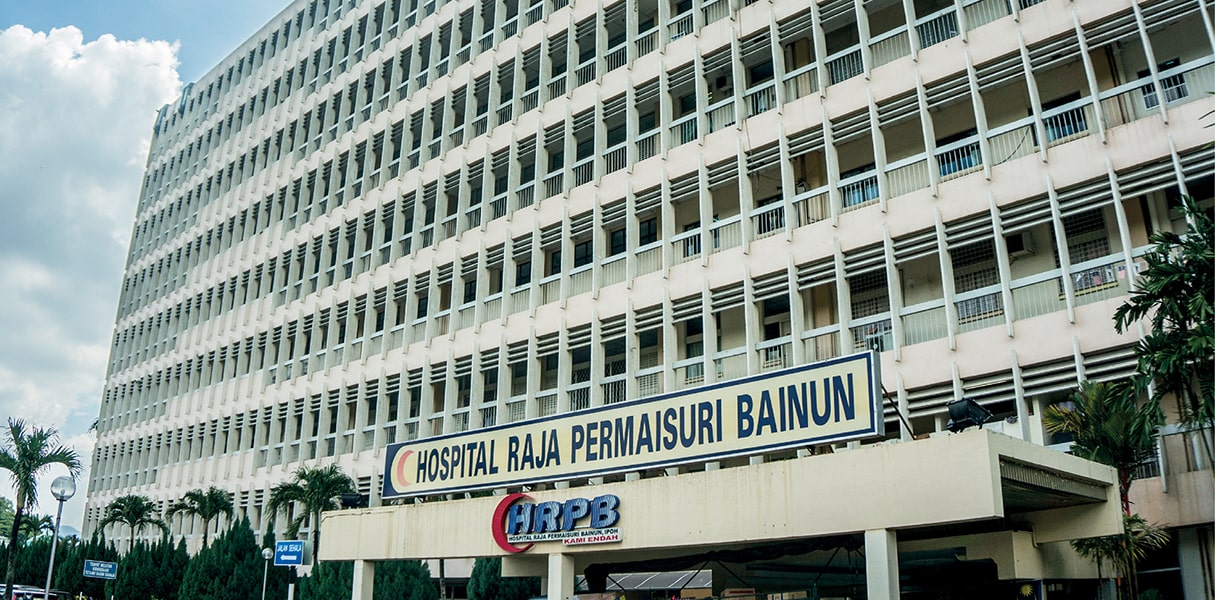KUALA LUMPUR, Sept 29 – Raja Permaisuri Bainun Hospital (HRPB) has issued a circular prohibiting the release of a patient’s medical records to third parties, including the patient’s or patient’s family lawyers, without a court order.
The Ipoh general hospital, a Ministry of Health (MOH) facility in the Perak state capital, stated that a patient’s medical record (Rekod Perubatan Pesakit [RPP]) is “government property” (hak milik kerajaan).
“For your information, recently, there has been confusion when a lawyer applies to access the documents, especially for use in a court case,” HRPB director Dr Megat Iskandar Megat Abdul Hamid said in an internal memo last September 22, as sighted by CodeBlue.
“It is reminded that providing copies of an RPP and all information related to a patient – such as closed circuit-television (CCTV) recordings and information on ambulance calls – via a lawyer’s letter, without a letter of a court order, is prohibited.
“This is to avoid issues of disclosing patient information (confidentiality) to third parties without approval.”
The HRPB director said exemptions are only applicable to applications from the Attorney-General’s Chambers (AGC), the state legal advisor’s office, or ministries through official letters or emails (which will be managed by the Medical Records Department or the Medicolegal Unit); from MOH’s headquarters, the state health department, or institutions; agencies authorised under the law to access documents; and court orders.
“It is also reminded that such applications must be informed to the hospital director for permission and approval from hospital management before information is sent to the applicant.”
CodeBlue reported last June about the case of Kumaraveloo Terpari @ Thirupathy, who died from a heart attack last April 13 during a minor motor vehicle accident after HRPB’s ambulance response team withheld cardiopulmonary resuscitation (CPR) from the 43-year-old school teacher.
CodeBlue’s report had disclosed a copy of the prehospital care form signed by the attending medical assistant that confirmed he withheld CPR intervention from Kumaraveloo, claiming that the patient’s body had turned cold (algor mortis), a “clear sign of death”.
Health Minister Khairy Jamaluddin has not disclosed the results of an independent inquiry held last July 14 that investigated HRPB’s emergency medical response in that case.
HRPB director Dr Megat Iskandar’s September 22 memo said that a patient or their family are eligible to request for “information related to treatment in the form of a medical report”, citing the Health director-general’s guidelines 16/2010.
According to the Health director-general’s guidelines on the preparation of medical reports at public hospitals and medical institutions 16/2010, issued in 2010, a patient can apply for their medical report (Laporan Perubatan) by making a written application through a form, besides furnishing identification documents. A court order is not required.
Applications for a deceased patient’s medical report can be made from their next-of-kin, including spouse, child, sibling, or parent, by making a written application through a form, and providing an authorisation letter from the next-of-kin as well as identification documents for the next-of-kin and the patient. A court order is not required.
For applications to access a patient’s medical report made via an agent or representative, such as insurance or a lawyer, the Health director-general’s 16/2010 guideline does not mandate getting a court order either. Only an authorisation letter from the patient or next-of-kin authorising the agent or representative is needed, besides the patient’s identification documents or a copy of the burial permit if the patient is deceased.
Third-party applications for a patient’s medical report, according to the 16/2010 guideline, also do not require a court order, save an authorisation letter from the patient or next-of-kin and documents proving the next-of-kin’s relation if the patient is deceased.
On litigation or public interest cases, the Health DG’s 2010 guideline also omits a court order requirement, stating only that applications for medical reports need to be referred to the state health director, the Kuala Lumpur Hospital director, or the director of the related medical institution.
The Health DG’s 2010 guideline defines medical reports as “documents prepared by a practitioner on a patient based on medical records”, including ordinary medical reports prepared by a medical practitioner, a brief report or opinion prepared by a specialist, or a detailed medical report prepared by a specialist.
Then-Health DG Dr Ismail Merican’s guideline covers medical reports at MOH hospitals and medical institutions.
In his vision to expand the digitalisation of health care in Malaysia, Khairy previously told the Health Policy Summit 2022 conference last month that it is the patient who chooses who to share their electronic health records with.
The minister did not state that the medical records of a patient at a public hospital belong to the government.








